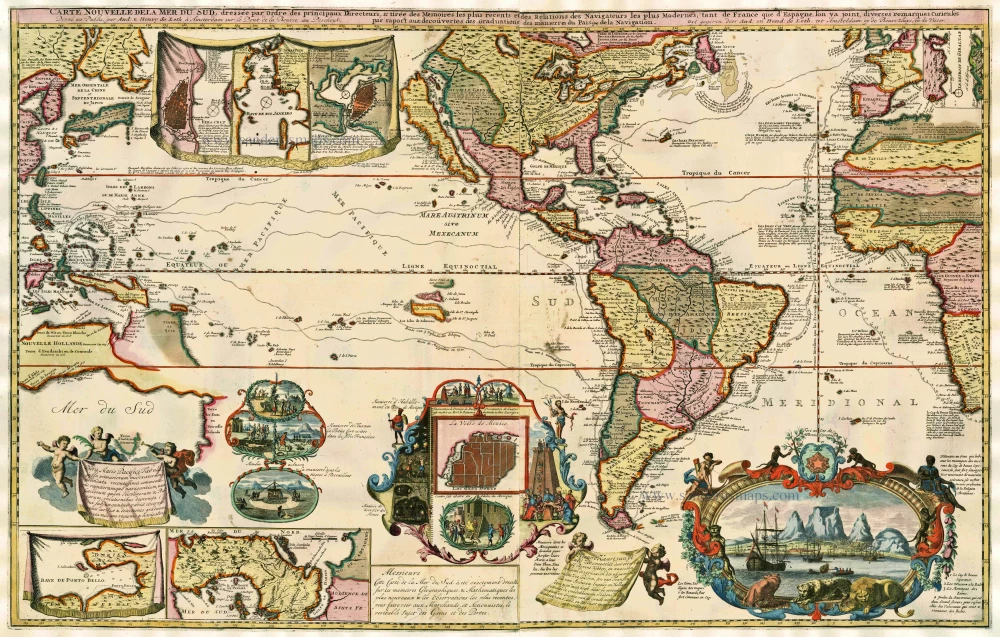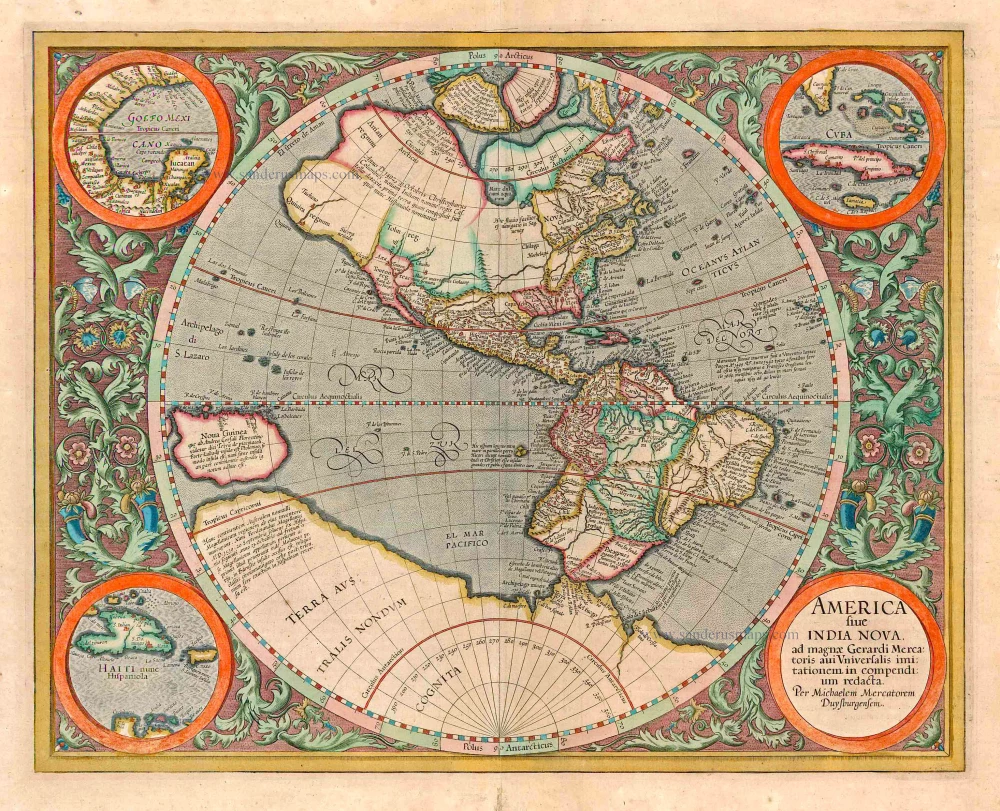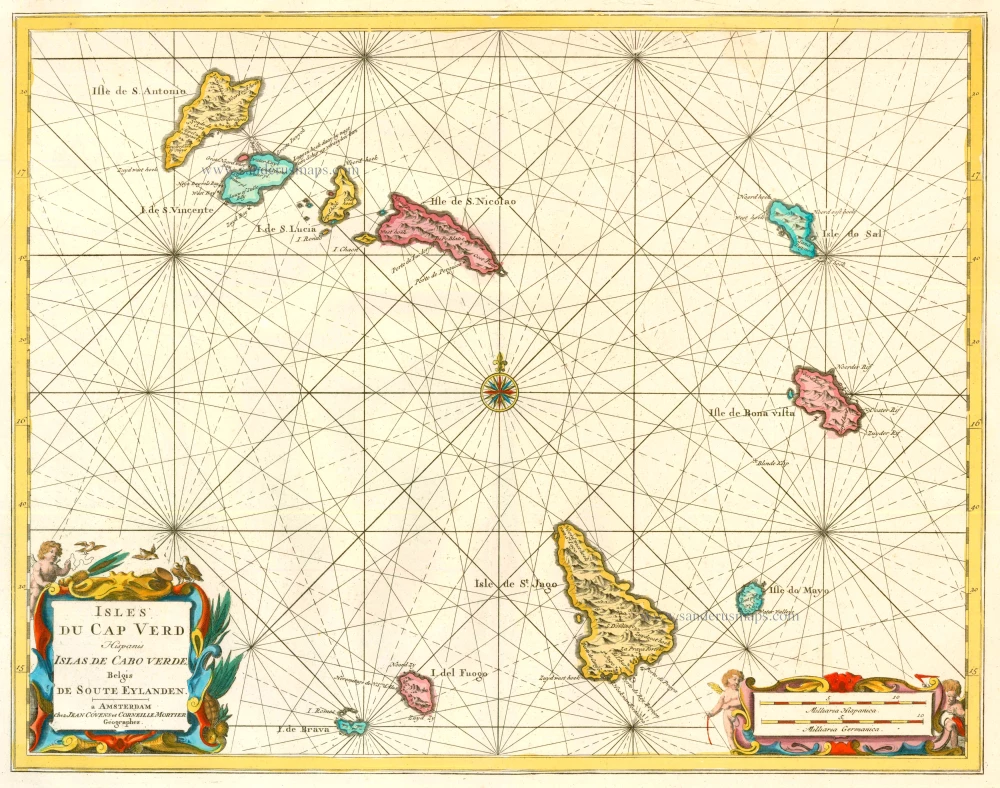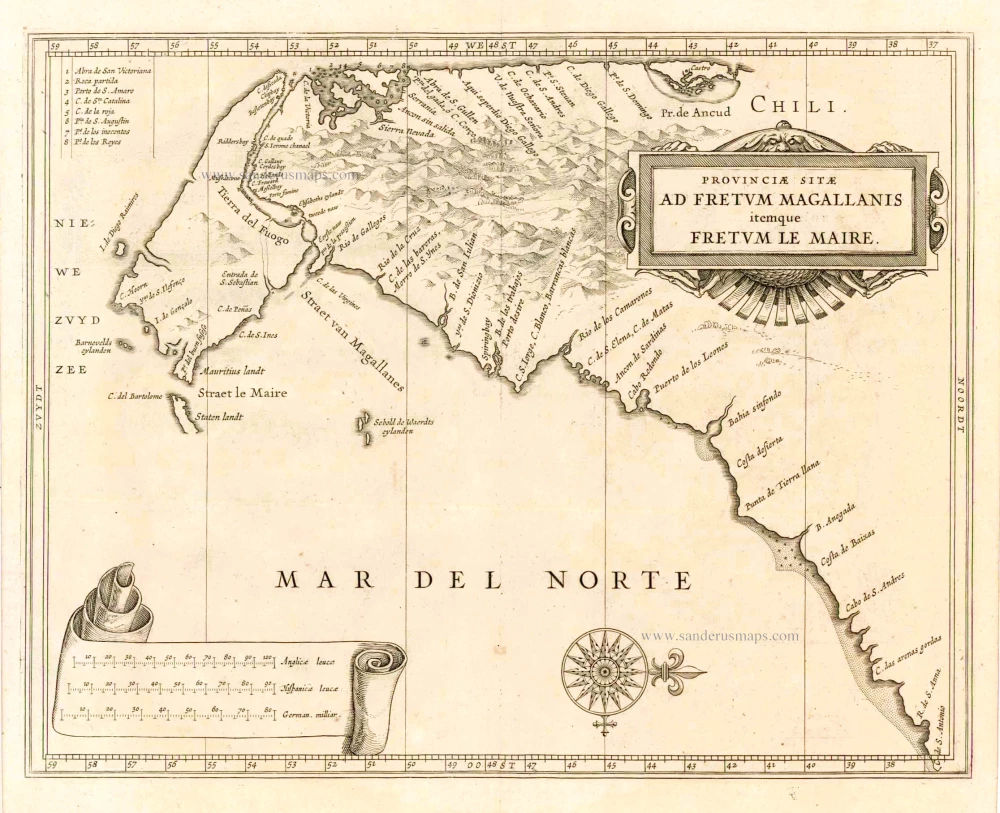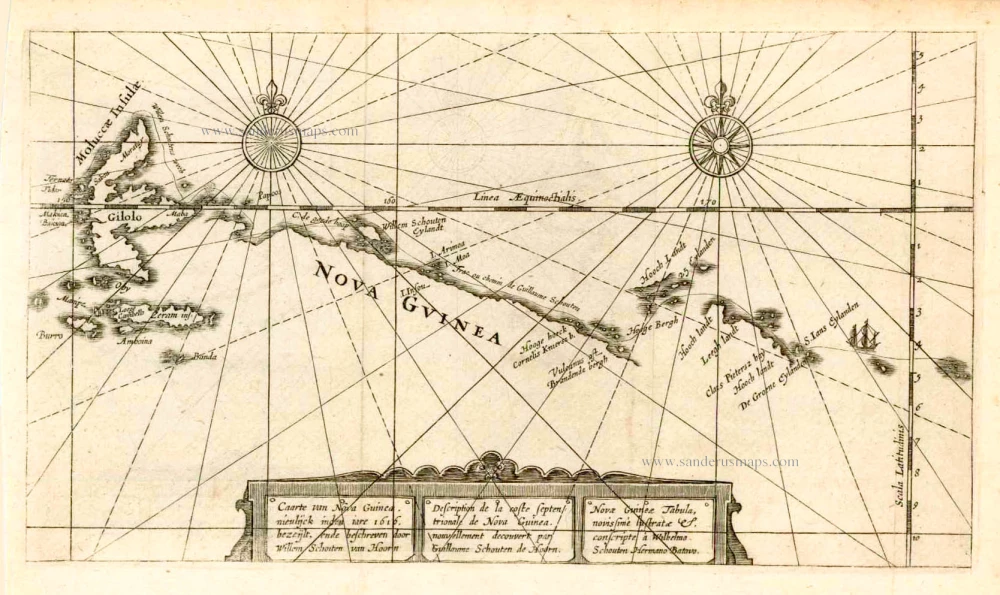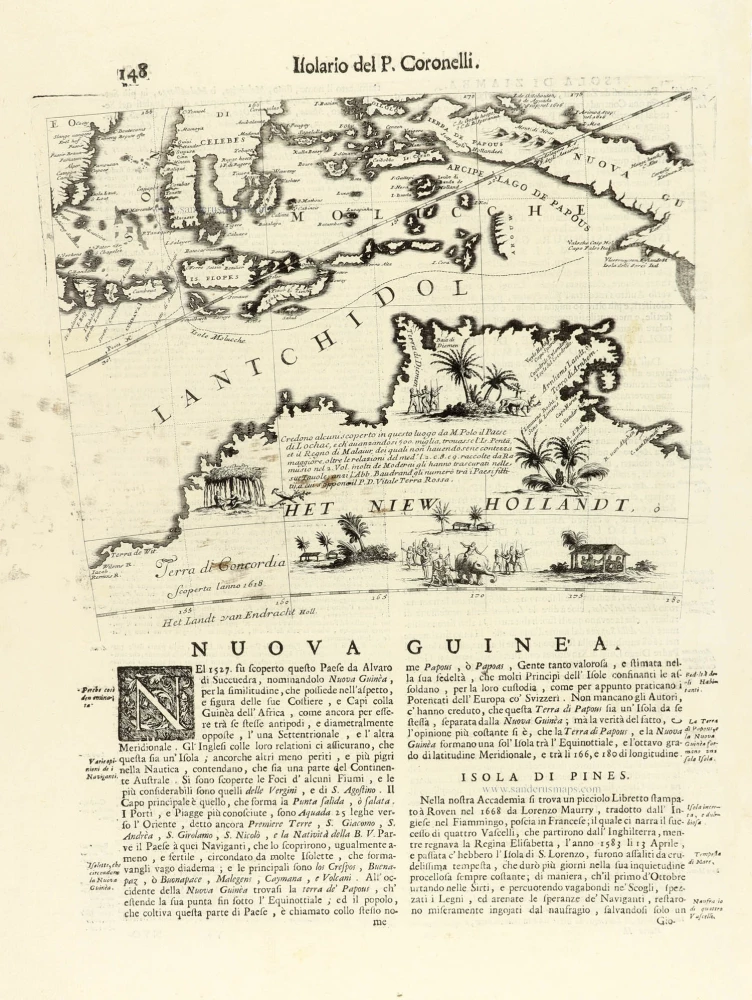Old antique map of Australia, the Pacific, America and the Atlantic Ocean, by Andries & Hendrik De Leth c. 1730
Long folding map covering an area greater than suggested in the title; from Southeast Asia with the north coast of Australia, America occupying a central position with California prominent as an island, to the west coast of Africa. Based in part on de Fer's map of 1713 with decorative vignettes inspired from that map but slightly varied.
Renowned as much for the decoration as for the cartographic extent, the map is finely engraved with large insets and vignettes illustrating, amongst other features, gold mines in Mexico, a sugar mill, turtle catching and Meso-American religious practices. A magnificent vignette in the lower right hand corner, adorned with appropriate animals, shows the settlement of Cape Town with its shipping. Other detailed plans show the Straits of Magellan and Gibraltar, Cape of Good Hope and City of Mexico. Tracks of trade ships and explorers are also shown. This is the third state of the plate, with inset plans of Vera Cruz, Rio De Janeiro and Havana replacing the decorative vignette of Niagara Falls.
Carte Nouvelle de la Mer du Sud.
Item Number: 17145 Authenticity Guarantee
Category: Antique maps > Oceans
Old, antique map showing the Pacific, America and the Atlantic Ocean by Andries & Hendrik De Leth
Copper engraving on two sheets, joined.
Size: 60 x 94cm (23.4 x 36.7 inches)
Verso: Blank
Condition: Contemporary coloured. Some reinforcements to prevent cracking of green colour, margins extended.
Condition Rating: B
References: Tooley (America) #94, p.133; McLaughlin, 220; Baynton-Williams New Worlds, p.136.
Long folding map covering an area greater than suggested in the title; from Southeast Asia with the north coast of Australia, America occupying a central position with California prominent as an island, to the west coast of Africa. Based in part on de Fer's map of 1713 with decorative vignettes inspired from that map but slightly varied.
Renowned as much for the decoration as for the cartographic extent, the map is finely engraved with large insets and vignettes illustrating, amongst other features, gold mines in Mexico, a sugar mill, turtle catching and Meso-American religious practices. A magnificent vignette in the lower right hand corner, adorned with appropriate animals, shows the settlement of Cape Town with its shipping. Other detailed plans show the Straits of Magellan and Gibraltar, Cape of Good Hope and City of Mexico. Tracks of trade ships and explorers are also shown. This is the third state of the plate, with inset plans of Vera Cruz, Rio De Janeiro and Havana replacing the decorative vignette of Niagara Falls.
Long folding map covering an area greater than suggested in the title; from Southeast Asia with the north coast of Australia, America occupying a central position with California prominent as an island, to the west coast of Africa. Based in part on de Fer's map of 1713 with decorative vignettes inspired from that map but slightly varied.
Renowned as much for the decoration as for the cartographic extent, the map is finely engraved with large insets and vignettes illustrating, amongst other features, gold mines in Mexico, a sugar mill, turtle catching and Meso-American religious practices. A magnificent vignette in the lower right hand corner, adorned with appropriate animals, shows the settlement of Cape Town with its shipping. Other detailed plans show the Straits of Magellan and Gibraltar, Cape of Good Hope and City of Mexico. Tracks of trade ships and explorers are also shown. This is the third state of the plate, with inset plans of Vera Cruz, Rio De Janeiro and Havana replacing the decorative vignette of Niagara Falls.

